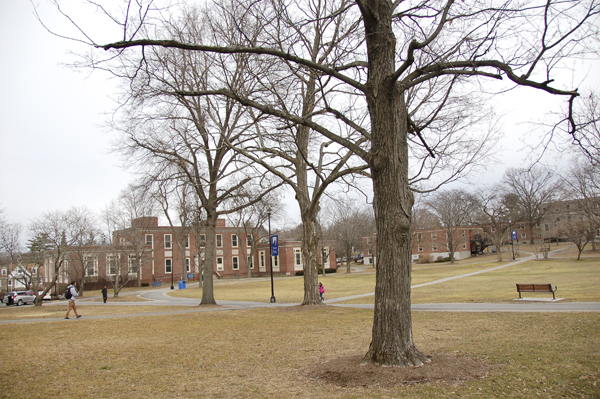

On Dec. 29, 2011, the New Paltz Town Board unanimously voted to amend the “Tree Conversation” law.
Building Inspector Stacy Delarede said the provisions in the law make it easier to enforce.
The law states that trees within 55 feet of the center of a public highway need a permit to be cut down. Commercial and Industrial districts need a 75-foot buffer. A permit is needed if it is measured at the height of 12 inches from the average natural ground. If it is less than 7 inches, a permit isn’t needed.
The town points to excessive cutting as a reason for the new amendments. This cutting “causes barren and unsightly conditions,” according to the new provisions. Increased surface drainage problems and safety concerns were also cited as cause for change.
The law was amended because the previous law did not have provisions for enforcement. Delarede said people would cut down trees, take the slap on the wrist fine in exchange for a new million-dollar view.
The law caused a ripple in the community because breaking this law would be a misdemeanor. For court purposes and not in the penal sense.
“We’re not just going to go up and slap cuffs on them,” Delarede said.
Permits are not needed for:
Public Property (Public Schools and Government buildings)
Severely storm damaged trees on residential land
Trees that endanger public or the property of the owner
Trees within 10 feet of a building
Trees that are used for commercial purposes
Illegal cutting may come with a fine of $350 for the first offense, $700 for the second and $1,000 for the third if the violation is within five months. Along with the fine, an appearance before the Environmental Conservation Board is made to make a restoration plan. This allows the town to have the power to enforce tree conservation.
“People should be told better info,” local resident Maureen Walker said.
She does however agree with the new provisions to conserve trees and believes they are beneficial to the community.
However, Delarede said some member of community will take issue with the new legislation.
“People don’t like to be told what to cut down,” Delarede said.
